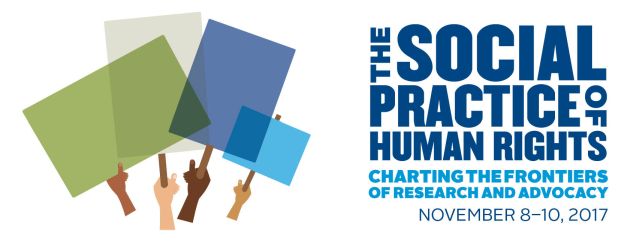
Start Date
11-8-2017 3:30 PM
Keywords
Sex work, Police Raids, anti-trafficking, India, labor
Abstract
Based upon ethnographic research with Durbar Mahila Samanwaya Committee (DMSC), a grass-roots sex workers organization in Sonagachhi, the iconic red light district in Kolkata, India, this paper explores the relationship between police raids and human rights violation. It especially focuses on the nature of violence initiated by the construction of “corrupt” evidence to justify a raid, which in this case is not solely a state initiative; the police usually work in tandem with other rescue missions such as the International Justice mission (IJM). The raid involves a practice and a narrative commonly referred to by both the police and the sex workers as “tip-off.”
Tip-off is an informal process whereby informants deployed by the police and/or IJM disguise themselves as customers and collate “evidence” about minors. Though the evidence in these cases is routinely based upon assumptions of the pretend customer, they are admitted as juridical grounds to warrant a raid. Therefore not surprisingly, the raids are indiscriminate and are spectacles of gross violations of the human rights of all the women in a given brothel irrespective of their age.
In presenting an ethnographic analysis of a specific raid I documented in summer 2015 as a paradigmatic instance, I argue that despite the efforts of DMSC to prevent the trafficking of minors and unwilling women through the self-regulatory board, the very spectacle of the raid obliterates these everyday sustained efforts instantaneously, leaving a trace of violence, destruction, and troubling silence. I contend that beyond their extraordinary quality, the raids epitomize the human rights violations the women confront every day; the violations are often obscured and inscribed as “ordinary."
In theory and praxis, this paper contributes to the discussion about the “worthiness” of human beings and how ordinary claims of justice are configured and contested in the larger global discourse of rights.
Included in
Asian Studies Commons, Criminology and Criminal Justice Commons, Social and Cultural Anthropology Commons
Ordinary 'Worthiness': Sex Work, Police Raids, and Human Rights Violence in Sonagachhi
Based upon ethnographic research with Durbar Mahila Samanwaya Committee (DMSC), a grass-roots sex workers organization in Sonagachhi, the iconic red light district in Kolkata, India, this paper explores the relationship between police raids and human rights violation. It especially focuses on the nature of violence initiated by the construction of “corrupt” evidence to justify a raid, which in this case is not solely a state initiative; the police usually work in tandem with other rescue missions such as the International Justice mission (IJM). The raid involves a practice and a narrative commonly referred to by both the police and the sex workers as “tip-off.”
Tip-off is an informal process whereby informants deployed by the police and/or IJM disguise themselves as customers and collate “evidence” about minors. Though the evidence in these cases is routinely based upon assumptions of the pretend customer, they are admitted as juridical grounds to warrant a raid. Therefore not surprisingly, the raids are indiscriminate and are spectacles of gross violations of the human rights of all the women in a given brothel irrespective of their age.
In presenting an ethnographic analysis of a specific raid I documented in summer 2015 as a paradigmatic instance, I argue that despite the efforts of DMSC to prevent the trafficking of minors and unwilling women through the self-regulatory board, the very spectacle of the raid obliterates these everyday sustained efforts instantaneously, leaving a trace of violence, destruction, and troubling silence. I contend that beyond their extraordinary quality, the raids epitomize the human rights violations the women confront every day; the violations are often obscured and inscribed as “ordinary."
In theory and praxis, this paper contributes to the discussion about the “worthiness” of human beings and how ordinary claims of justice are configured and contested in the larger global discourse of rights.


